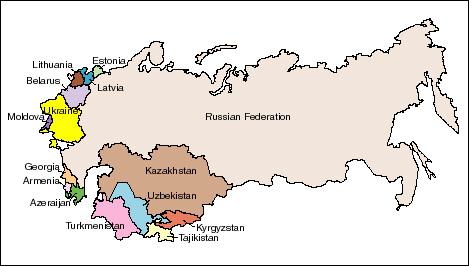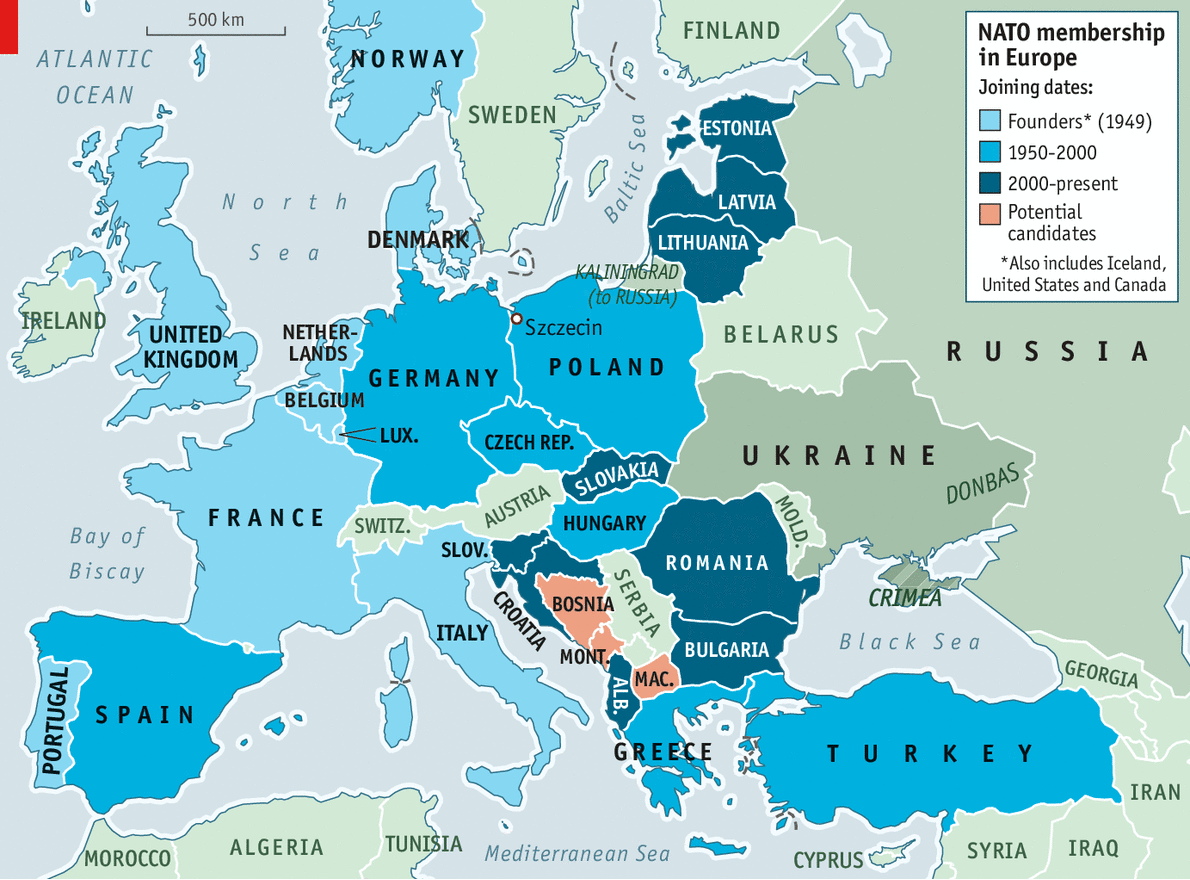Countries in the Former Soviet Union (before Russian takeover of the Crimea)
 |
| Source |
Countries of the Warsaw Pact (Satellites of the USSR) before it broke up
 |
| Source |
I needed to remind myself of the geography of the Cold War. Recall that while Albania and Yugoslavia were Communist, they were not members of the Warsaw Pact. They and the Warsaw Pact nations formed a wide band separating western Europe from the USSR. Since Russia fought Germany in World War I, and the Russian dominated USSR fought Germany in World War II, Russia it thought to have long term concern for its safety from war with western European nations.
With the end of the Cold War and the breakup of the Soviet Union and the Warsaw Pact, the North Atlantic Treaty Organization expanded to include many of the Baltic countries that had separated from the Soviet Union and many of the former Warsaw Pact countries as shown in the next map. Finland, Moldova, Ukraine and Belarus are the remaining non-NATO countries separating the Russian Federation from the NATO countries in western Europe. If Ukraine were to join NATO there would be nothing that the Russian Federation might see as a buffer between it and NATO.
 |
| Source: The Economist |
 |
| Source |
Of course, Russia and Japan fought several times in the 20th century, and the Soviet Union and Communist China were on the brink of war at one point. Thus the Russian Federation, thinking in historical terms, might be concerned about its eastern borders.
And of course, the Cold War rivalry with the United States can not be far from the minds of Russian leaders, even if we see the Cold War as having ended 25 years ago.
No comments:
Post a Comment